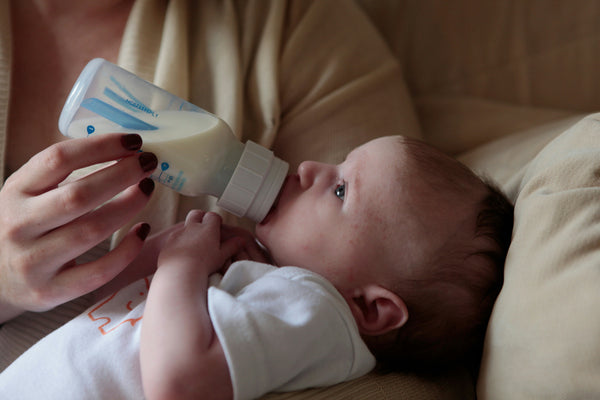How to Help Kids Who Withhold Their Bowel Movements: Practical Tips
share this article

Dealing with kids who withhold their bowel movements can be challenging and stressful for both parents and the little ones. When kids hold in their poop, it can lead to discomfort, pain, and even more severe constipation. Understanding the reasons behind withholding and finding effective strategies to encourage regular bowel movements are essential steps to alleviating this issue. In this blog, we’ll be providing practical tips on how to get your kids to poop if they withhold.
Understanding Withholding Behavior
Withholding behavior in kids often stems from a fear of pain associated with bowel movements, past negative experiences, or a desire to exert control. This behavior can result in hard, painful stools, making the problem worse over time. Addressing the root cause and providing gentle encouragement are key to helping kids overcome this habit.
Daily reads to help your little ones lead happier and healthier lives.
Join the
Happy Gut Club
Practical Strategies to Encourage Bowel Movements
Create a Routine: Establishing a regular bathroom routine can help normalize bowel movements. Encourage your kiddo to sit on the toilet at the same times each day, particularly after meals when the digestive system is most active. A study published in Pediatrics found that a consistent toileting schedule significantly improved bowel habits in constipated kids [1].
Use Positive Reinforcement: Positive reinforcement can be a powerful motivator. Praise your little one for sitting on the toilet, even if they don’t poop right away. Reward charts, stickers, or small treats can provide additional motivation. Research in the Journal of Pediatric Psychology showed that positive reinforcement techniques effectively encouraged regular toileting behavior in kids [2].
Increase Fiber Intake: A diet high in fiber can help soften stools and promote regular bowel movements. Incorporate fiber-rich foods such as fruits, vegetables, whole grains, and legumes into your kid's diet. According to the American Journal of Clinical Nutrition, increasing dietary fiber intake is associated with improved stool frequency and consistency in kids with constipation [3].
Ensure Adequate Hydration: Proper hydration is crucial for preventing constipation. Encourage your kiddo to drink plenty of water throughout the day. The Journal of Gastroenterology reports that adequate fluid intake helps soften stools, making them easier to pass [4].
Promote Physical Activity: Regular physical activity can stimulate bowel movements. Encourage your little one to engage in daily physical activities, such as playing outside, running, or participating in sports. A study in the Journal of Physical Activity and Health found that physical activity significantly improved bowel function in kids [5].
Create a Relaxing Bathroom Environment: Sometimes, the bathroom environment can affect a kid's willingness to use the toilet. Ensure the bathroom is a comfortable and non-threatening space. Consider using a footstool to support your kid's feet while sitting on the toilet, as this can help them adopt a more natural and effective position for bowel movements.
Use Natural Remedies: Certain natural remedies, such as prune juice or kiwis, can help alleviate constipation. These foods are high in fiber and other compounds that promote bowel movements. Studies have shown that prune juice and kiwis are effective in improving stool frequency and reducing constipation symptoms in kids.
Summary
To help kids who withhold their bowel movements, parents can establish a regular bathroom routine, use positive reinforcement, increase dietary fiber, ensure adequate hydration, promote physical activity, create a relaxing bathroom environment, and consider natural remedies.
















